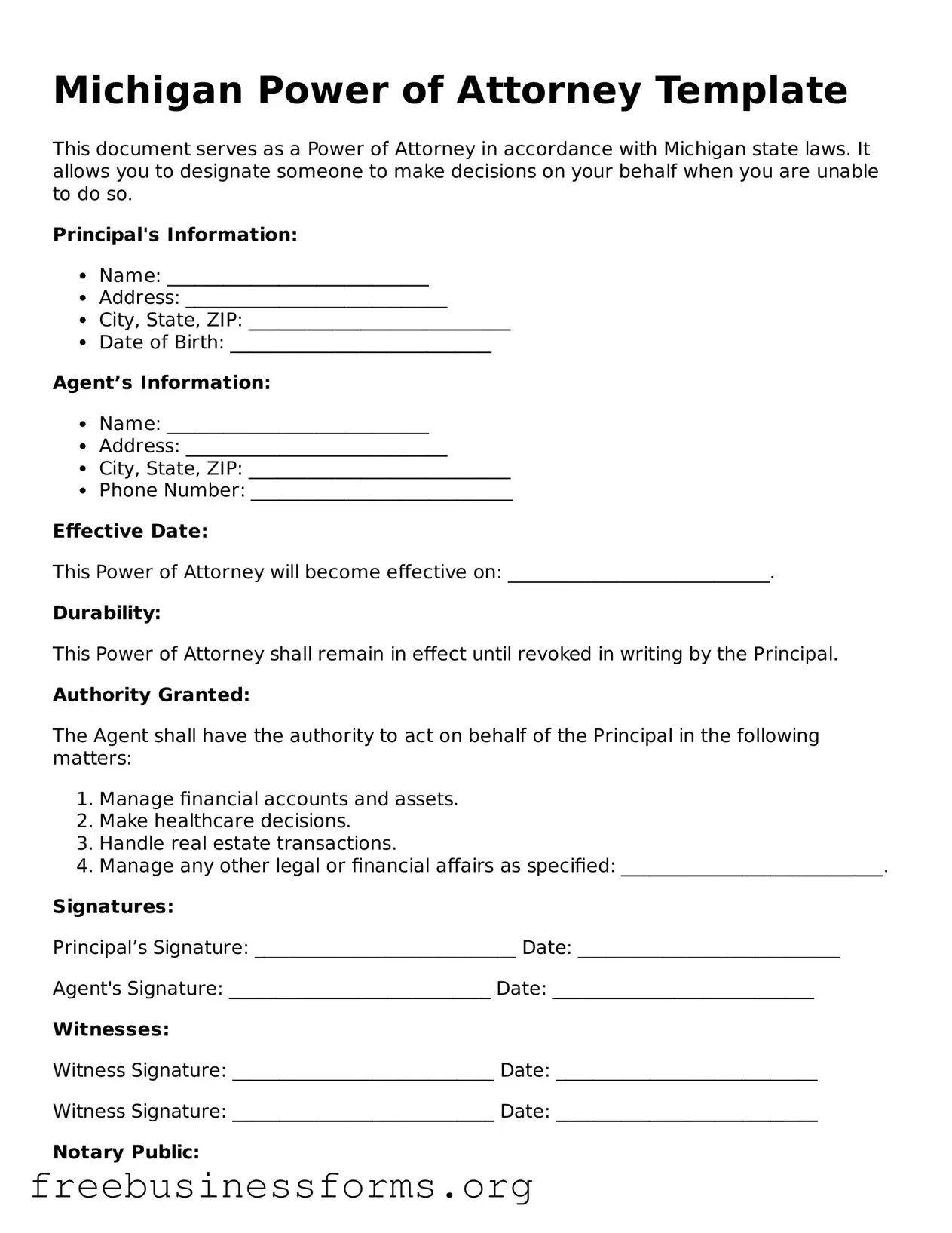Blank Power of Attorney Template for Michigan
The Michigan Power of Attorney form is a legal document that allows one person to give another person the authority to make decisions on their behalf. This can include financial matters, healthcare decisions, or other important issues. Understanding this form is essential for anyone looking to ensure their wishes are honored when they cannot speak for themselves.
Open Form Here

Blank Power of Attorney Template for Michigan
Open Form Here

Open Form Here
or
↓ PDF File
Quickly complete this form online
Complete your Power of Attorney online quickly — edit, save, download.